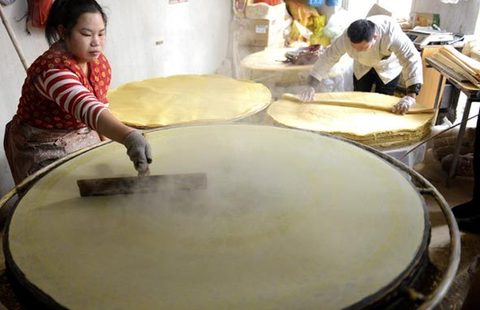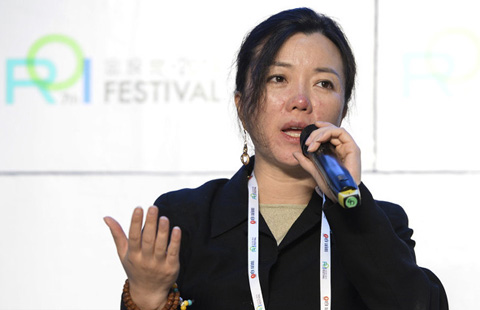Apps bring offline services to your doorstep
By Meng Jing (China Daily) Updated: 2015-02-09 07:29"Nearly 40 percent of our users are professional workers aged between 25 and 34. They are busy and do not want to be troubled with tedious chores.
"What is worth noting is that a sizeable proportion of our users are young college students.
"It is clear that young people are not that diligent compared with their parents, signaling a rosy future for our business," he says.
Despite Sun Li and other entrepreneurs' confidence, the O2O market is still in its infancy with a lot of startups dying every year, says Sun Mengzi, from Analysys International.
Some O2O companies pose a threat to traditional stores, while others help boost the sales of brick-and-mortar businesses with Internet technology. But there is no firm that has completely reshaped its traditional businesses.
"There are security concerns with such home delivered services. There is no regulation to guide their development. And many startups' models are easily copied," the analyst says.
Because there are no successful pioneers to follow, for those who have already jumped in with their creative business ideas and the money landed from investors, a rapid expansion to become the No 1 player in their respective niche market has become the top strategy for survival.
Hou from Momoda says he is going to effectively "burn" the investment his company secured and cover more users in 2015.
"You need to stay ahead on everything. Be the first one to get investment, be the first one to expand to second-tier cites ... Otherwise you will die or be taken over by the largest player," he says.
"There is no room for second best in the O2O market."
- Homosexual-dating app explores overseas market
- Chinese brokerages see surging profits in January
- New Zealand, Chinese customs move toward electronic trade verification
- Drone shines in Wang Feng's proposal to Zhang Ziyi
- China launches first equity options, investors bet stock prices to rise
- Alibaba places China smartphone business bet with $590m Meizu deal
- Chinese container vessel arrives in Myanmar
- China warns of challenges for global economy in 2015

















